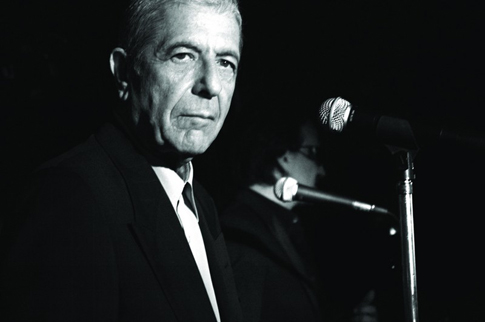Forget Your Perfect Offering
 It’s been a strange few weeks – suddenly UK politicians have been forced to live like the rest of us (or maybe just a little bit more like the rest of us), senior US politicians are claiming that the CIA lied to them about torture, a Scottish Presbyterian minister is comparing the gay rights movement to Nazism, US radio hosts are implying that President Obama is the antichrist, Tom Hanks is chasing the Illuminati, and Leonard Cohen’s still coming to town. Thank God.
It’s been a strange few weeks – suddenly UK politicians have been forced to live like the rest of us (or maybe just a little bit more like the rest of us), senior US politicians are claiming that the CIA lied to them about torture, a Scottish Presbyterian minister is comparing the gay rights movement to Nazism, US radio hosts are implying that President Obama is the antichrist, Tom Hanks is chasing the Illuminati, and Leonard Cohen’s still coming to town. Thank God.
Next week the Canadian poet, novelist, and singer will once again perform his exquisite songs in public, over three nights in Dublin and one in Belfast, inviting his audience to participate in the mystic wandering that first spoke loudly for a generation seeking to live meaningfully, in the late 1960s, between what Martin Luther King, Jr. called the triplets of racism, materialism and militarism. Cohen is now 74 years old, and after an eventful decade in which the sacred and profane mingled perhaps more obviously than usual (six years in a Buddhist monastery on the one hand, having his retirement fund stolen by his accountant on the other) seems more at peace than ever, more amused with life than complaining about its struggles, honest about human need – for companionship, pleasure, answers, or at least the beginning of answers.
His recent live album showcases a voice slow-crackling with gravel, but incarnating generosity – he speaks often of his sense of privilege to be able to share his art in public, and his addressing of the audience as ‘friends’ evokes a sense of genuine community.
“Forget your perfect offering, there’s a crack in everything, that’s how the light gets through,” he wrote in 1992; and listening to him today, it feels like these words have been traveling for seventeen years to meet an audience living between the same triplets as Dr King, but perhaps with a new demonic sibling in the form of constant fear. When Cohen sings these words, you can feel the light.
I can feel it especially, as I continue to try to make sense of my new life in the United States. This past week the news out here has been dominated by the suggestion that the CIA may have lied to members of Congress about the use of the euphemistically named ‘enhanced interrogation techniques’. I wonder if this story will admit the cracks that Leonard Cohen speaks of – because we surely need some light when we can’t be sure who’s telling the truth, when our public conversation has been so colonized by vengeance and snark that we couldn’t even be sure of the truth if an objective robot truth machine appeared on television to tell us what it was.
This makes me feel more than a little depressed. I need to remind myself that darkness can get the upper hand only if I tune my mind to its frequency. I think this is what the Apostle Paul means when he asks us to focus on ‘whatever is noble’. You can be captivated – captured, actually – by images of suffering and violence; you can be consumed by the notion that the world is a terrible place. But you have to learn this. You learn it from the strangest of places – from the LCD screen that dominates your living room, from a party political campaign billboard, from the over-mined themes of fiction sold in supermarkets or multiplexes. You don’t have to think to believe that everything’s going to hell. It’s the default position of our cultural discourse; or at least the part of it that turns up as headlines in the mainstream media, most of the time. You do have to think to challenge the tide of negativity and even nihilism that wants to be in charge. There are, of course, poets and writers and musicians and architects and activists and artists in every medium of life that offer lenses through which you can resist this tide. And if I were in Ireland, I’d be planning to make a kind of religious pilgrimage to hear Leonard Cohen in my home town later this month. I’d want to be balmed by his voice, the way we feel when we are with someone who seems to know more about everything than we do; I’d want to be graced by the sound of his music; I’d want to meditate on lyrics that require us to face ourselves, and in the light of God, to see something more than just the cracks. The light shines through the cracks, and the cracks cannot overcome it.